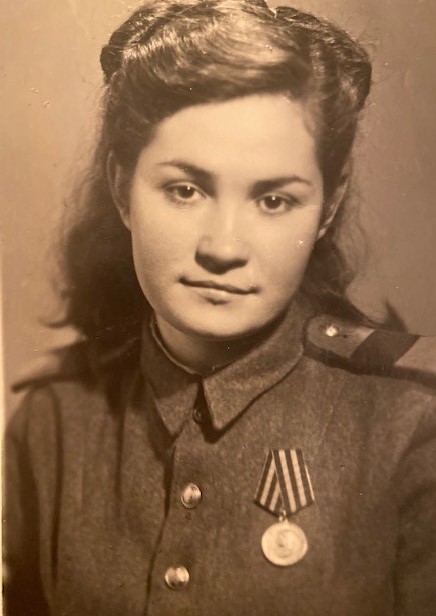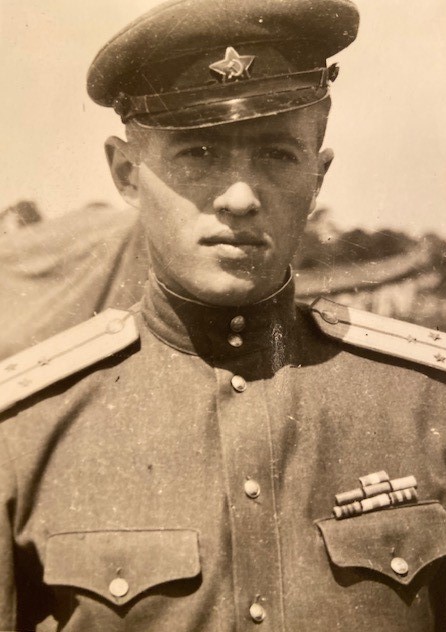Boris Chernov was born in 1923 in a small town not far from Kiev, in the family of a Jewish butcher.
At the time of the German invasion of the USSR in late June 1941, Boris had just completed the tenth grade of school in Kiev. He was sent to attend an officer course.
In 1942, Boris Chernov was dispatched to the front. During the three years of his wartime service, Chernov took an active part in combat operations. At the age of 20, Chernov already commanded a battery and supervised the launching of anti-aircraft guns. Apart from fighting in the major battles of the war, he was involved in the liberation of his native Kiev in November 1943. He met V-E Day in Germany. By that point, Captain Chernov had been awarded Orders of the Red Banner and the Patriotic War, 1st and 2nd class, as well as medals. He was nominated for the title of Hero of the Soviet Union – but, as was common in those years, the honor was downgraded to the less prestigious Order of the Red Banner.
After the end of the war, Boris Chernov went on to serve in Germany for another five years.
His father Yakov served in a partisan unit during the war. On one occasion, this unit was visited by the future Soviet leader Nikita Khrushchev, and this visit is attested by a photograph showing Yakov and Khrushchev together. Later, after the death of Yakov Chernov in 1946, his widow was able to use this photograph to receive extra pension benefits.
After finishing his service in Germany, Boris Chernov was sent to the Transbaikal Military District in the Russian Far East, where he served as the commander of a rocket regiment. At the age of 30, Chernov was promoted to the rank of lieutenant colonel.
On May 1, 1960, in the period of the Cold War, an American spy plane piloted by Francis Gary Powers entered Soviet airspace. Boris Chernov took part in intercepting and tracking the aircraft. For this, he was later awarded his second Order of the Red Banner.
After his demobilization and retirement, Colonel Boris Chernov moved to Riga, where he worked as deputy director of the "VEF" State Electrotechnical Factory, which produced radio receivers that were very popular among the Soviet intelligentsia, since they enabled their owners to listen to foreign radio broadcasts ("enemy voices").
Boris Chernov died in Riga in 1985.
Nina Vishnevetskaya, Boris Chernov's wife, was born in 1923 in a Jewish family living in the town of Buki (in present-day Cherkasy Oblast, Ukraine). She was one of many children of Kalman, a tailor.
Shortly after her birth, the family moved to Yevpatoria, fleeing pogroms and bandits. Nina attended school in that city.
Following the outbreak of the Soviet-German War in June 1941, Nina completed an accelerated nursing course and was sent to the front. Throughout the war, Nina Vishnevetskaya served as a nurse on hospital trains, following frontline troops and evacuating the wounded from combat zones. Nina herself was wounded twice. She was awarded medals.
After the end of the war, she returned to Yevpatoria. She later lived in the Russian Far East, because of her husband's job.
Nina Chernova lived out the last years of her life in Riga, where she died in 1993.








